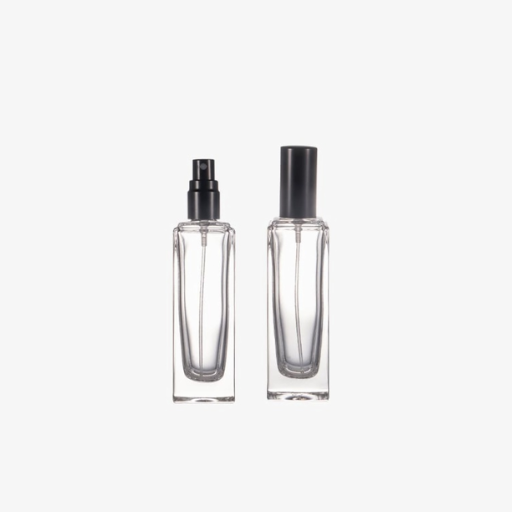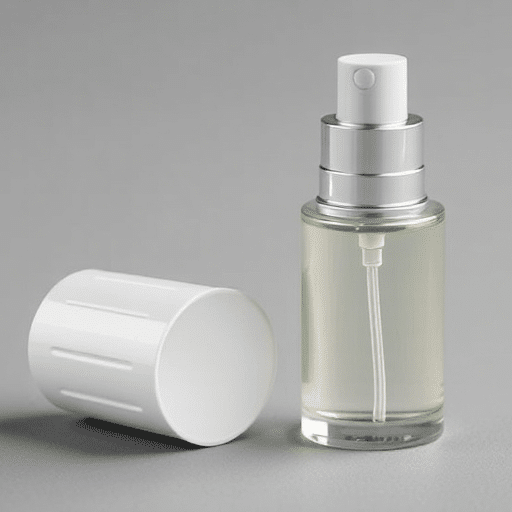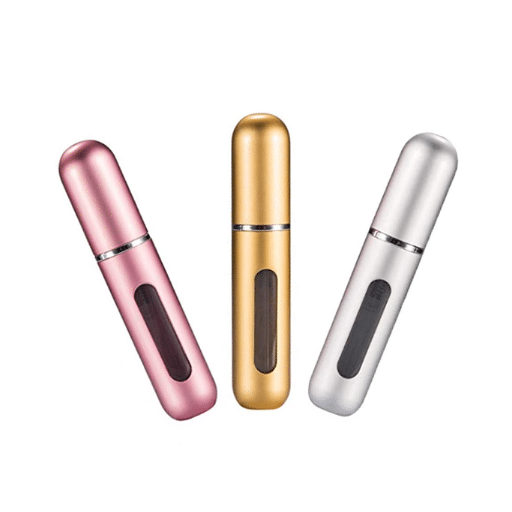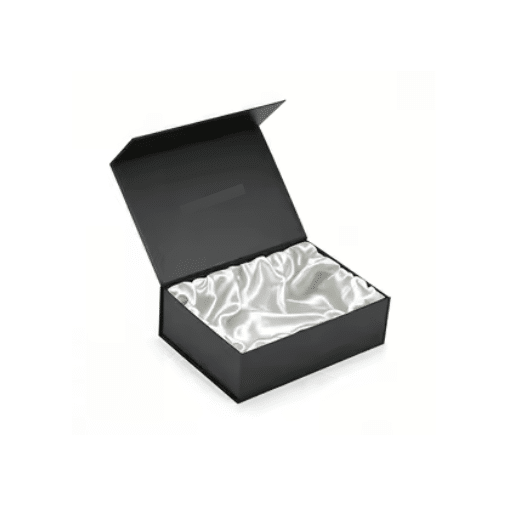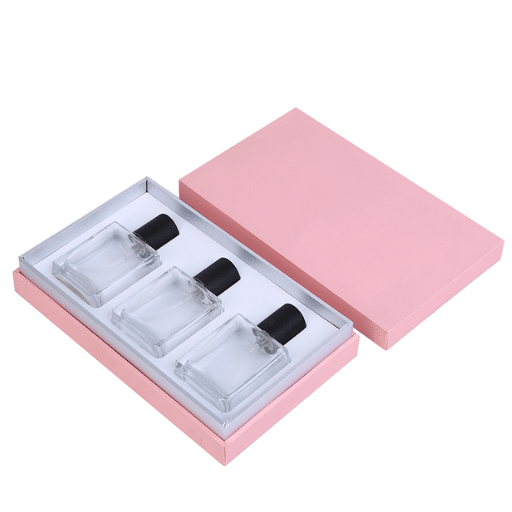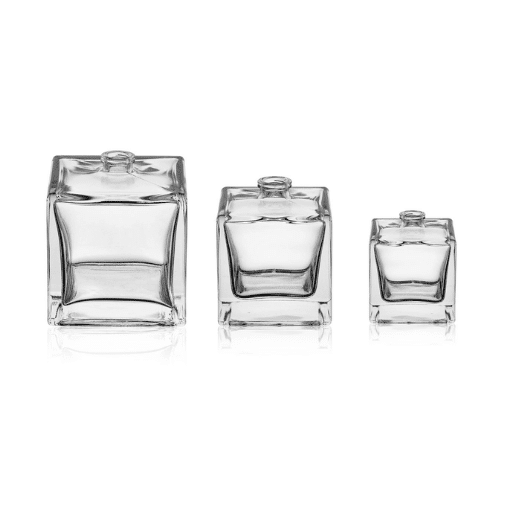Does the fragrance you used to love now seem to disappoint in strength or longevity? Even more frustrating, does it feel as though the scent just disappears altogether? We are used to perfumes lingering around us, but this may not be the reality in some cases. Fret not; you are not the only one going through this; we have solutions for you! In this blog, we will explore the possible issues relating to your favorite perfume and discuss practical methods to make your fragrance last all day. Understanding our olfactory senses and learning ways to apply perfume can do wonders; this guide will rejuvenate and empower you to reclaim your scent.
What Causes Olfactory Fatigue or “Nose Blindness” to Your Perfume?
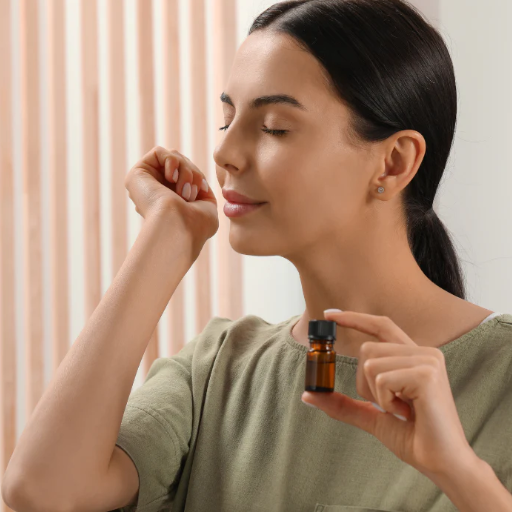
Let’s discuss the decline in recognition of odor. When your sense of smell becomes accustomed to a particular scent due to prolonged exposure, olfactory fatigue or “nose blindness” occurs. Your brain prioritizes recognizing new and possibly essential scents over routine ones. Perfumes are especially prone to these effects because they cling to your skin and clothing. Your brain is capable of filtering them out. The scent is still there, but your brain has desensitized to the smell to aid in focusing on other stimuli.
Understanding How Olfactory Fatigue Affects Your Sense of Smell
To fully understand the concept, let’s identify its causes. The phenomenon is due to how our sensory system manages and processes smells. “Nose blindness” has also been referred to as odor adaptation. Research suggests that extended exposure to a scent makes the nose’s olfactory receptors less sensitive over time. To prevent the detection of danger or fresh sources of interest, our brain utilizes this phenomenon to reallocate attention to novel and more critical stimuli.
In a fascinating turn of events, it has been noted that different individuals may take varying durations and have distinctive adaptations to recovery concerning scent and olfactory fatigue. For example, lighter and simpler flows may take longer to adapt than stronger, more complex fragrances, which may take quicker adjustment. Also, newer information suggests that brief pauses in engagement with a particular fragrance or alternating between different scents help restore scent receptors to a condition where intensity can be perceived at its fullest.
Why You Get Used to Your Favourite Perfume’s Scent
When a scent is constantly present for an extended period, it comes to the nose fatigue or sensory adaptation stage – olfactory fatigue, the sustained sensory exposure ceases to become a stimulus, and somewhat a mundane background flourishes. Some studies show that constants like the fragrance’s concentration and the complexity of the fragrance may make this adaptive process begin as fast as within minutes. Primarily to ease the burden on the brain as it fills with repetitive stimuli, from the overly engaged nostril, receptors keep complaining and stop responding towards the sent signals due to constant buzz-like exposure.
A research study on perfume usage and habits had an interesting takeaway. People tend to say they lose the ability to smell their fragrance due to habitual use, even if other people around them can still detect it. This phenomenon is impacted by airflow and humidity as they affect the diffusion and perception of fragrances. If you switch perfumes or take breaks from wearing a particular one, your olfactory receptors will feel “freshened” when you put the fragrance back on, just like when you first used it.
Is It Anosmia or Just Temporary Nose Blindness?
The total inability to smell is known as anosmia. This differs significantly from what some may refer to as temporary nose blindness. In this case, ‘nose blindness’ refers to the complete desensitization to certain smells over long periods. However, anosmia can stem from sinus infections, nasal polyps, head injuries, or viruses like flu and COVID-19. Recent research suggests around 3% of the population may undergo some form of anosmia, be it temporary or permanent, at some stage. Unlike volcano, which resolves under non-observative means and is often managed by scent rotation, anosmia may need specific treatments like nasal sprays or corticosteroids, depending on its underlying cause. Knowing these differences is critical when determining if a reduced sense of smell is a harmless, benign adjustment or an adaptation that needs further diagnosis.
How Should I Apply Perfume to Make It Last Longer?
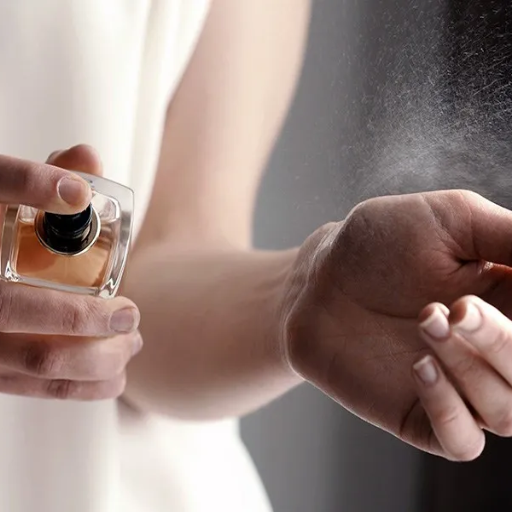
Apply perfume on pulse points, including the wrists, neck, behind the ears, and the inner elbows. To keep the scent lasting long, directly apply it to the mentioned locations. These spots have raised temperatures, which release the fragrance all day long. Dry skin does not hold scent well, so moisturize your skin before applying. The inner part of elbows, wrists, and neck also tend to be more warm, which helps in scent diffusion throughout the day. Diffusion is when scents are thoroughly mixed into another substance. You could also enhance oils or lotions so that they match your fragrance. Never massage the perfume into your skin because this will cause the scent to disappear much faster than it needs. Lightly spray perfume on clothes and hair for extra impact, but remember that some fabrics can get stained.
Best Pulse Points for Applying Perfume
Perfume works best when sprayed in warmer body zones than in the surroundings, as blood flow increases. Examples of such places include the wrist, neck, and behind the ear. The base of the throat, backs of the knees, and inner elbows are also great spots to apply fragrance for a longer-lasting effect. Some preferred places to wear perfumes for women include the knees and nape of the neck. Applying wrist perfume and gently waving the hand would release the scent beautifully. If a dress is planned for the day, using a mild spritz to the rear of the knees will let fragrance waft upwards.
Why Moisturizing Before Perfume Application Increases Longevity
Applying moisturizer before putting on perfume boosts the effectiveness of moisturizers. This is because hydrated skin is a good surface for the perfume. Here are the main reasons:
- Hydration Creates a Better Surface
To provide a better surface on the skin for rubbing the perfume against, moist skin will always do wonders because of its sticky and supple surface. When used on oil-based moisturizers, the skin will hold fragrance effectively. This surface will help prevent faster evaporation.
- Oil-Based Moisturizers Help Lock in Scents
With oil-based moisturizers, perfume fragrances can be trapped in an additional layer for longer. The lock-in oils associated with these moisturizers help hold off fragrance molecules and prevent rapid dispersal into the air.
- Enhanced Layering Effect
Matching scented lotions worn together with perfume can achieve a complete fragrance profile. This strategy works well, mainly when used in collaboration with dry-skinned individuals, as the multi-layered scent increases duration and strength.
- Data-Driven Insights
Fragrances last at least thirty percent longer on hydrated skin than dry skin. Trees and shrubs also suggest perfumes are more intense for six to eight hours when put over an oil-based moisturizer. On the other hand, dry skin does not hold fragrance for more than three to five hours.
- Combating Environmental Factors
Certain cosmetics and moisturizers can help protect the skin from external environmental influences such as heat, wind, and odor-eliminating factors that break perfume molecules.
If you add moisturizing to your routine, you improve the performance of your perfume and retain its scent throughout the day.
Spritz vs. Spray: Which Application Method Lasts Longer?
Choosing between spritzing and spraying can influence how long the scent lingers on your skin when applying fragrance. Spritzing usually means a light, concentrated application aimed at specific pulse points like the wrists, neck, or behind the ears. Since these points on the body radiate heat, they help diffuse the fragrance more effectively so the scent lasts longer. Conversely, spraying is when perfume is distributed over a larger area, like clothing or hair. While these areas may not retain the smell as well as pulse points, the perfume can have a softer, more enveloping aroma.
Research into fragrance retention suggests that how perfume particles interact with skin—or any other surface—significantly influences longevity. Finer sprays from more modern perfume bottles provide an advantage in distributing microdroplets that consistently adhere for extended periods. In contrast, spritzer-style bottles tend to lose their scent faster. Users can achieve longevity and coverage by balancing application methods, such as concentrating spritzed perfume on warm pulse zones and lightly misting clothing.
How Should I Store My Perfume to Preserve Its Scent?
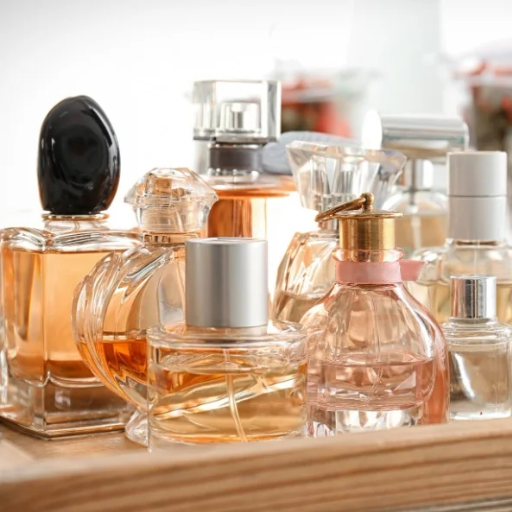
To maintain your perfume’s scent, store it in a cool, dark area away from direct sunlight and constant temperature changes. Heat, light, and air exposure can change the fragrance over time. Keep the bottle closed to prevent oxidation. A drawer, cupboard, or original packaging are great for storage because they protect the perfume from external factors. Do not keep perfumes in humid places like bathrooms, as moisture can affect their quality. Proper storage will keep the fragrance fresh and enduring.
Why keeping Perfume in the dark Place Extends Shelf Life
Storing perfume in a dark place is crucial to keep it safe and longer. Scented oils can change their smell and color if exposed to light, especially sunlight, which can break down the chemical bonds within the fragrance. The UV rays will worsen the situation quicker because they cause the oxidation process to happen faster. Stronger fragrance notes become impotent due to weaker ultraviolet light over time. Therefore, leaving your perfume in a dark area like a cupboard, drawer, or even in its box shields it from harmful light and keeps its delightful essence for much longer.
How Temperature and Humidity Affect Your Perfume’s Longevity
The temperature and humidity conditions that your fragrance is kept in are just as important as the quality of the perfume itself. An increase in temperature results in a faster evaporation rate of a fragrance’s top notes, which ultimately causes changes to its scent profile and twisted degradation structure. Absolute moisture can lead to the introduction of water inside the bottle, which can change the fragrance over time and encourage bacteria to breed. In general, perfumes perform best when kept within a temperature-controlled environment away from bathrooms and anywhere humid, ideally being maintained between 60 °F and 72 °F (16°C to 22 °C). Doing these things ensures that your fragrances last longer and remain true to their intended scent from being stacked cheek by jowl in heavily trafficked areas.
When Should I Reapply My Perfume Throughout the Day?
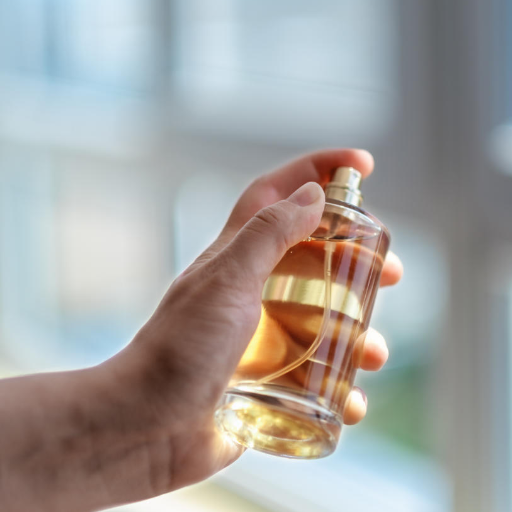
How often one reapplies perfume depends on the type of fragrance and its longevity. In most cases, perfumes last 4 and 8 hours, so reapplying once daily will usually do. For those transitioning into the evening, focus on refreshing your scent in the afternoon. For those with quickly fading perfumes, consider reapplying in the afternoon. Scented fragrances can be applied sparingly to pulse points, such as wrists or neck, to avoid overpowering the fragrance. Environments and occasions should always be considered when reapplying to ensure appropriateness.
Ideal Timing for Refreshing Your Scent
The timing for refreshing your scent relies primarily on the type of fragrance, the weather, personal activity levels, and even personal preference. Lighter fragrances, like Eau de colognes or those based on citrus, fade at a faster rate, thus requiring a slight touch-up every 3-4 hours. Steps should be taken during warmer climates, as scents tend to dissipate more quickly due to perspiration. On cooler days, fragrances linger longer, so only reapplying once in the afternoon should be fine. If a special event is on the schedule for the evening, it is best to reapply just before to make an impression. Refreshing the routine to these factors can allow for a pleasant scent throughout the day.
How to Layer Fragrance Products for All-Day Scent
Enhancing the fragrance’s longevity and ensuring it lasts throughout the day can be achieved by using fragrance products together. Things start with a scented body wash that works well with your fragrance; this provides a clean base. A moisturizing lotion or body cream must be applied, but it should be within the same aroma family because hydrated skin keeps the fragrance longer. Perfume or cologne must be applied to the skin’s pulse areas–the wrists, neck, and the back of the ears. If you long to go the extra mile, spritzing perfume on your hair or clothing will do the trick—fabric and hair retain scent. Matching fragrances, such as scented lotions and oils, can increase fragrance longevity by up to 30%, as estimated in fragrance sustainability studies. This ensures the scent remains consistently strong throughout the day. Complimentary product fragrance routines significantly improve a fragrance’s projection and keep it lasting longer.
Which Fragrances Typically Last Longer on the Skin?
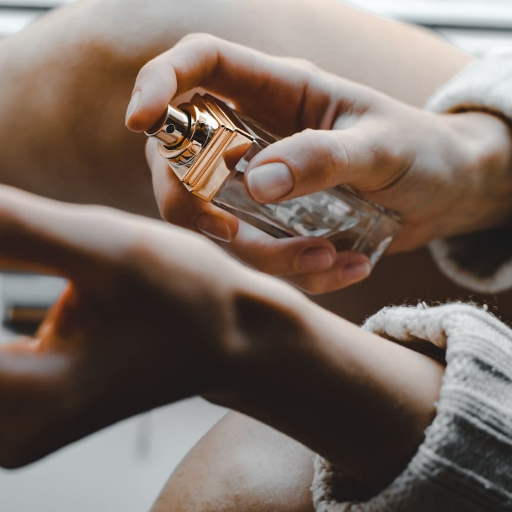
Perfume types like parfum or extract de-parfum last longer on the skin because their perfume oil concentration is higher. An increase in perfume strength means a decrease in alcohol content; therefore, they cling to the skin. Furthermore, fragrances that contain base notes such as oud, amber, patchouli, and vanilla tend to last longer because of their thick and heavy-rich structure. Warmer and richer scents last longer on the skin than lighter citrus-based scents.
Why Woody and Oil-Based Scents Have Better Staying Power
Woody and oil-based scents seem to last longer because of their ingredients’ make-up and structural properties. For example, sandalwood, cedarwood, and vetiver containing woody fragrances are built on base notes, which are slower to evaporate than top and middle notes. These evaporating natural compounds are denser and heavier, making it easier for them to cling to the skin for a long time. Also, oil-based scents are less volatile than alcohol-based formulations, also called perfume, meaning they evaporate faster. This reduction in evaporation increases scent duration since the oils retain the fragrance closer to the skin. Research indicates that oils create a better bond with the skin’s natural sebum, enhancing the retention of scent molecules. Furthermore, oil-based perfumes usually have richer, warmer compositions, enhancing their ability to linger throughout the day and making them more frequently used. All these reasons are why woody and oil-based fragrances are especially favored by people looking for enduring scent profiles.
How Perfume Molecules Evolve and Interact with Your Skin
Different aspects of my body, such as body chemistry, temperature, and natural oils, affect how perfume molecules interact with my skin. The top notes are the first thing I smell when applying a scent since they evaporate the quickest. After some time, the middle notes form the fragrance’s heart before the base notes, which last the longest, settle in. A perfume adapts differently to everybody, and my skin’s pH and moisture levels can change its evolution, making it unique and truly personal to me.
Reference Sources
- Study Title: “The Chemistry of Fragrance Stability and Degradation”
Published Year: 2021
Key Findings: This study explores how environmental factors such as exposure to light, heat, and air impact the stability of fragrances over time. It highlights oxidation as a major contributor to scent degradation, particularly affecting volatile top notes. The research emphasizes the role of storage conditions in preserving perfume quality.
Methodology: Researchers conducted controlled experiments simulating long-term exposure to various environmental conditions. GC-MS (Gas Chromatography-Mass Spectrometry) analysis was used to monitor changes in the chemical composition of fragrance samples over time.
- Study Title: “The Influence of Skin Chemistry on Fragrance Perception and Longevity”
Published Year: 2023
Key Findings: This paper examines how skin traits, such as pH, hydration, and oil content, affect perfume longevity and scent perception. It found perfumes evaporate faster on dry skin, leading to a shorter scent life. Additionally, specific skin chemistries can amplify or neutralize certain fragrance notes.
Methodology: A cohort of participants with diverse skin types was tested using identical fragrance formulations. Skin properties were analyzed in conjunction with real-time scent profiling over 12 hours.
- Study Title: “Consumer Practices and Perfume Longevity”
Published Year: 2019
Key Findings: The research identifies common usage patterns, such as over-applying or improper storage practices, negatively influencing fragrance performance. It provides recommendations for optimizing perfume longevity, including applying to moisturized skin and storing bottles in cool, dark places.
Methodology: Survey-based research was conducted alongside experimental trials monitoring fragrance performance under different user scenarios and storage environments.
- Study Title: “Modern Preservation Techniques in Fine Fragrances”
Published Year: 2020
Key Findings: This study highlights advancements in fragrance formulation, focusing on stabilizing perfume molecules to enhance shelf life and scent retention. Encapsulation and using antioxidants were identified as practical solutions to preserve volatile compounds.
Methodology: Experimental techniques involving advanced encapsulation technologies and antioxidant additives were tested on varying perfume formulations to measure improvements in stability over time.
These studies provide valuable insights into why perfumes may lose their scent over time and offer practical solutions for preservation and optimal usage.
Frequently Asked Questions (FAQs)
Q: Why can’t I smell my perfume after wearing it for a while?
A: This phenomenon is called “olfactory fatigue” or “nose blindness.” When you wear the same fragrance regularly, your brain begins to filter out the scent as it becomes familiar. This is a natural adaptation mechanism. While you might not be able to smell your perfume anymore, others around you likely still can. To combat this, try switching between different fragrances, take occasional breaks from wearing perfume, or spray it on clothing instead of skin (though be careful with delicate fabrics).
Q: How can I make my perfume last longer throughout the day?
A: To make your perfume last longer, apply it to moisturized skin, as fragrances adhere better to hydrated skin. Target pulse points where blood vessels are closer to the skin (wrists, neck, behind ears). Layer your fragrance by using matching shower gels or body lotions. Choose Eau de parfum over Eau de toilette, as EDPs have higher concentrations of fragrance oils and generally have better longevity. Finally, avoid rubbing your wrists together after application, as this can break down the scent molecules.
Q: Why does the same perfume smell different on different people?
A: Your body chemistry significantly influences how a perfume smells when applied. Factors like skin pH (whether more acidic or alkaline), diet, medications, hormone levels, and even body temperature can alter how fragrance notes develop. This is why a perfume might smell fantastic on your friend but not quite right on you. Perfumers design fragrances with this variation in mind, knowing that each person will experience a unique version of their creation.
Q: What’s the difference between eau de parfum and eau de toilette regarding lasting power?
A: Eau de parfum (EDP) contains 15-20% aromatic compounds, while eau de toilette (EDT) contains only 5-15%. This higher concentration means EDPs typically last 6-8 hours, while EDTs last 3-4 hours. Because of this difference in fragrance oil concentration, EDPs will generally provide a longer smell and stronger projection throughout the day. EDPs tend to be more expensive than EDTs of the same fragrance, as they contain more precious perfume oils.
Q: How should I store my perfume to maintain its quality?
A: To maximize your perfume’s lifespan, store it away from direct sunlight, heat, and humidity. Light and heat can break down the aromatic compounds, altering the fragrance over time. A cool, dark place like a drawer or closet is ideal. Avoid bathroom storage due to temperature fluctuations and humidity. Keep bottles tightly closed when not in use, and if possible, store them in their original boxes for additional protection. Properly stored, most fragrances can last 3-5 years before their quality diminishes.
Q: Why does my perfume smell different from when I first bought it?
A: Several factors could be responsible if your perfume smells different than when first purchased. Perfumes contain natural ingredients that can mature or degrade over time. Exposure to air, light, and temperature changes can accelerate this process. Your perception of scents also evolves; what once seemed novel may become familiar. Seasonal changes in your skin’s chemistry can also affect how a fragrance develops. The perfume may have “turned” and should be replaced if the change is dramatic or unpleasant.
Q: Are there techniques to enhance how I smell my perfume throughout the day?
A: Yes, there are several techniques to enhance your ability to smell your perfume throughout the day. Apply fragrance to your clothes or hair (if the alcohol content isn’t too high), as these retain scent longer than skin. Spray perfume on less common areas like behind knees or inside elbows. Some people find that applying a small amount to the back of their neck allows them to catch occasional whiffs as they move. Using unscented lotion before applying perfume can also help the fragrance adhere better to your skin, extending its presence.
Q: Why do some synthetic fragrances seem to last longer than natural ones?
A: Synthetic fragrance molecules are often specifically designed for longevity and projection, while natural ingredients tend to be more volatile and evaporate more quickly. Natural ingredients like citrus oils typically disappear within hours, while some synthetic molecules can last days. This is why many long-lasting designer parfums contain a significant proportion of artificial ingredients. However, natural fragrances often provide a more complex, evolving experience on the skin, even if they don’t last as long as their synthetic counterparts.

